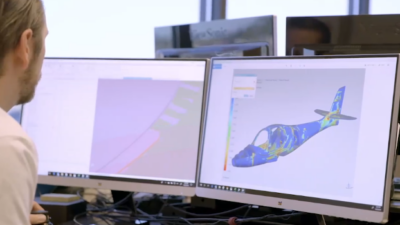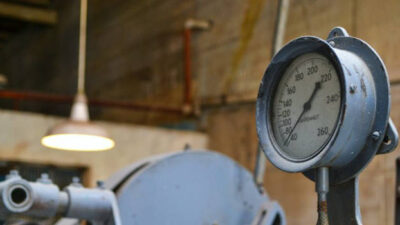A good field engineer can help improve the process controls based on knowledge and experience, potentially saving money by being able to quickly diagnose problems.

Have you ever worked on a process that was designed based on a computer simulation model? The model can be a very effective design tool to predict how mechanical systems will react with one another. These predications can then be used to help with the design process to allow you to make control philosophy changes and correct problem areas within the control scheme. The models are typically used to assist in the feasibility of large scale process control changes to validate a new control philosophy but can be an expensive investment. There are also limitations—the model can only account for the variables that you know, and the more variables that are present the longer the model will take to solve.
Although the model may show a process working, unknowns in the field can prevent it from working in the real world. The control design needs to be flexible enough to handle the unknown factors, and the engineer needs to be flexible with the design to adjust it for site specific conditions.
A successful operational process requires a good working relationship between the design engineer and the field engineer starting the new system. The field engineer needs to be able to analyze the new system and clearly document and describe the potential operational or performance issues so that the design engineer can adjust and correct potential faults that were not envisioned during the initial design phase. These are typically issues with unintended design consequences or oversights that computer modeling may miss. An example of this would be a heat balance for a boiler system, the model can look at the theoretical efficiencies of a system, but a minor deviation—such as a blowdown valve leaking—can affect the efficiency of a system as a whole. Another example would be a boiler that is designed for operation at sea level and is being constructed at an elevation of 3,000 ft. This minor change in atmospheric pressure can cause stability issues in the high pressure steam drum, as well as derating the boiler due to reduced density of the air. A good field engineer that knows his process can help identify these issues.
When there is a control change that is not built from a model, but from an existing design at another location, a good field engineer that knows the process and can help diagnose and correct issues with the control. Once again, a field engineer needs to needs to be able to clearly document and describe the operation of the new design prior to construction, so that the design engineer can adjust the model to correct issues that were not envisioned in the design phase. An example of this would be in a desuperheating system, where there is an insufficient run of straight pipe after the spray nozzles. When there is insufficient straight pipe, some of the spray water does not evaporate and falls out of the steam at the bend in the pipe, resulting in the steam drain closest to the bend remaining open. This affects the system in two ways: it reduces the efficiency of the system by wasting steam and increases water consumption in an effort to properly reduce the steam temperature. Here again, a good field engineer that knows this process can help identify these issues, before they reach the field.
A good field engineer is process knowledgeable and versatile with the ability to apply his skills across a broad spectrum of issues. He can help improve the process controls based on his knowledge and experience, potentially saving money by being able to quickly diagnose problems. Ideally, the engineer in the field would be consulted on major process changes before they ever get sent for construction. However, if they are not consulted up front, their value will become readily apparent when the system is not working as intended and requires an experienced hand to “work out the bugs.” As with anything, the more thought that is put into a process up front, the less money will need to be put into it in the end. A good field engineer is able provide the know-how to maximize the initial investment.
This post was written by Michael Robb. Michael is a senior engineer at MAVERICK Technologies, a leading automation solutions provider offering industrial automation, strategic manufacturing, and enterprise integration services for the process industries. MAVERICK delivers expertise and consulting in a wide variety of areas including industrial automation controls, distributed control systems, manufacturing execution systems, operational strategy, business process optimization and more.


